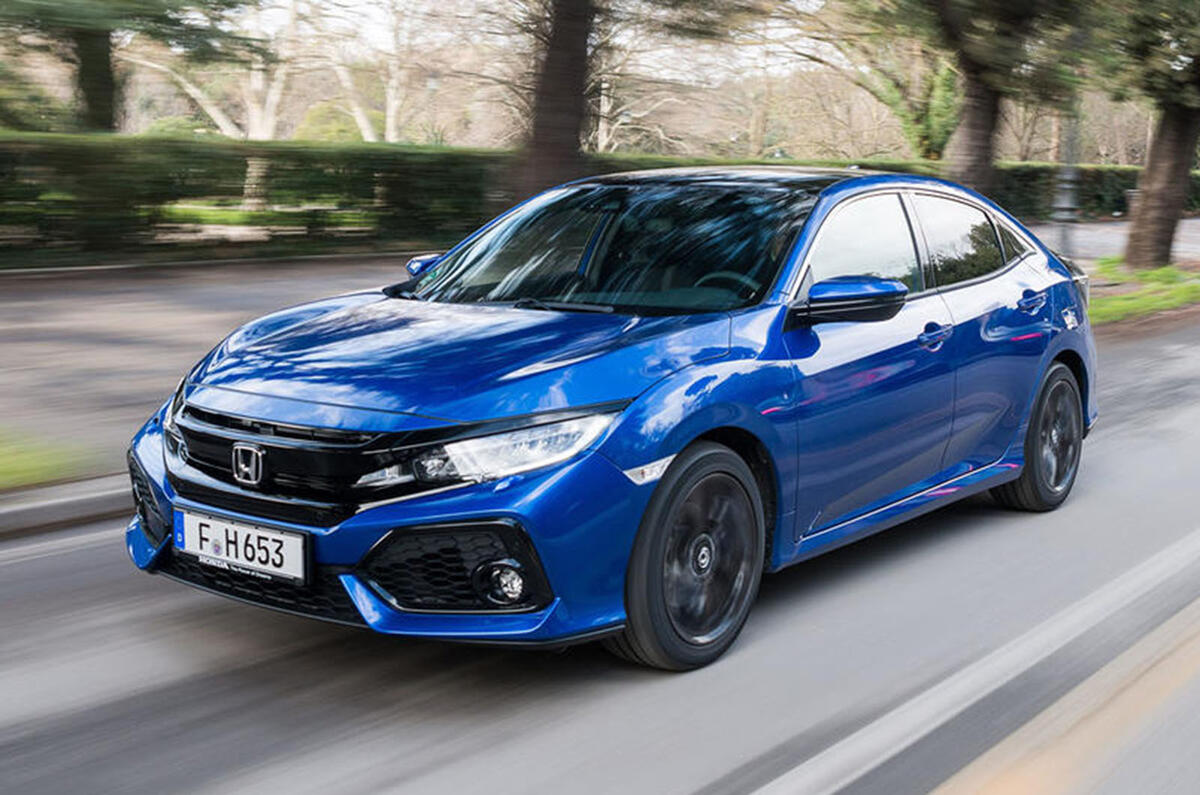The new Honda Civic diesel will be an important car for the British market despite the sharp decline in overall diesel car sales in 2017, Honda UK boss David Hodgetts has said.
Figures from the Society of Motor Manufacturers & Traders (SMMT) revealed that diesel car sales fell by 17.1% last year, down to 1,065,879 units from 1,285,188 in 2016.
The SMMT has attributed this decline to “anti-diesel messages” from the Government.
However, Hodgetts has said that diesel is still expected to make up close to 40% of all Civic sales in the UK, even though consumers have shied away from the fuel.
“We’ve really done well with the petrol Civic and, to be fair, we’ve really taken some ex-diesel customers back across to petrol,” he said.
“But there’s still a market for diesel, so the Civic diesel will really help us get overall Civic sales up.
“We will aim roughly for that sector average, which is not far short of 40% of diesel. That means going slightly more to the corporate sector than it does for our petrol mix.
“But we’ve done pretty well this year with both retail and corporate, and our overall sales have held up pretty well, despite the issue with diesel."
Referring to the “anti-diesel” messages from the Government, Hodgetts said there was a need for the discussion to be “based on the facts”.
He explained: “We need to balance the debate about the overall situation. As we know, diesels are particularly good for certain driving environments and long-distance drivers, while petrol may well be better in some urban environments.
“There's a place for diesel, and it’s proven to be the least CO2-emitting technology by some way.
“You can only bring on electrified technology at a certain pace, and the bigger thing to me is not just our ability to engineer those solutions, but to give solutions that customers can actually afford to buy.”
Honda still hopes that hydrogen will be the “ultimate solution”, although Hodgetts admits that there’s a great deal of work yet to be done to bring hydrogen vehicles to the fore.
He said: “It’s a complete catch-22: the cost of the technology with the very small volumes is so high that there aren't many cars being produced. The manufacturers may say that there’s no hydrogen infrastructure, but who’s going to introduce that infrastructure if it isn’t the automotive sector?





Join the debate
Add your comment
Either Honda has got it very wrong...
...or alternatively it can capitalise on the fact that it continues to offer a diesel where others are pulling out. And let's not forget that the previous Civic diesel was one of the most efficient (and reliable) models in its sector.
So Honda may have made the right choice, though it means that we won't be seeing the impressive Insight Hybrid any time soon.
Rubbish goes unchallenged.
I think Autocar needs to tool up with some properly qualified journalists to challenge garbage press releases like this. Does it serve the industry or the reader?
I don't trust Honda anymore
Does that include the enourmous amount of electricity required to produce the diesel, or does the diesal magically appear in the car's fuel tank?
Sonic wrote:
Do you think petrol doesn't require similar amounts of electricity to produce?
There needs to be some critical thought and perspective in the fuel argument. Electricity, petrol, LPG, diesel, and hydrogen all have a place depending on the vehicle's use. The balance will shift as technology and requirements develop.
A good rule of thumb is that the more hysterical someone is in their condemnation of any given option, the less considered their opinion is likely to be.
Sporky McGuffin wrote:
No, petrol is just as bad. But I wasn't comparing diesel to petrol.